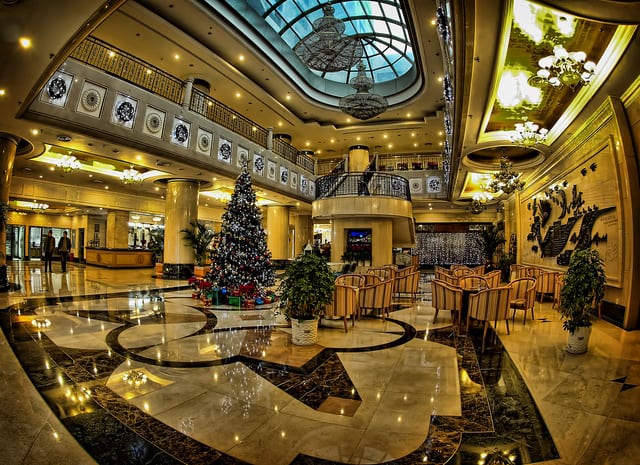This sponsored content was created in collaboration with a Skift partner.

With nearly 80 million people in the U.S. alone, Generation Y is the fastest-growing demographic in both the workplace and the marketplace. Also referred to as “Millennials,” the group covers those with birth years ranging from 1977 to 1995 and presents a dynamic opportunity for hotels to attract and retain a booming market that already represents one third of all hotel guests.
The two biggest questions for hotels are: How do you market to Gen Y? And, once you get them through the lobby doors, how do you meet or exceed their expectations?
Marketing to Gen Y
When it comes to marketing strategies, Millenials are far more likely to take hotel advice from their peers than from traditional marketing channels. Social networking sites like Facebook, Twitter and Instagram are essential to capturing this demographic.
Does your hotel have a Facebook page and a Twitter handle? If not, you’re missing an opportunity to market to Gen Y. More likely than any other demographic to Tweet from check-in to check-out, encourage Gen Y guests to connect with you during their stay and share their travel experience with their circle of friends. When guests log-on to the hotel Wi-Fi, your splash screen should prominently feature your social media channels.
At Le Meridien Ile Maurice on the island of Mauritius, when you log into the Wi-Fi you’re taken directly to the hotel’s Facebook page and encouraged to “like” it. I think this is a great strategy both for getting more “likes” on your page and getting in-house guests to connect and share.
So what does Gen Y really want in a hotel? According to consultants “Y Partnership” this new generation of travelers expects:
- Free Internet
- Casual food available 24 hours
- Self-service check-in/out
- Hotels with individual personality and a distinctive ‘sense of place’
- Multi-use lobbies that encourage guests to socialize
Exceeding Gen Y’s expectations
Regarded as the go-to expert on Millennials and Gen Y, Jason Dorsey is the author of the book Y-Size Your Business. In the book, he defines two key characteristics of the Gen Y consumer that are especially applicable to the hotel industry:
First, “Gen Y is not tech-savvy. We are tech-dependent. We often don’t know how technology actually works, only that we can’t live without it.”
For hotels, that means providing technology that is reliable and user-friendly. Gen Y guests want to get out of their rooms and expect their Wi-Fi enabled devices to work seamlessly anywhere in the hotel. And never limit the number of devices that guests can connect. Like most of us these days, Millennials often travel with multiple Wi-Fi enabled devices (mobile phone, laptop, iPad, e-reader) so two people sharing a room could have half a dozen devices or more.
Second, Dorsey says “Gen Y loves instant gratification. We are notorious for not being able to wait in line – especially when getting coffee!”
Gen Y often prefers to check-in online versus face-to-face meaning hotels that implement kiosk technology at check-in, allowing guests to bypass the front desk, have a market advantage. At Hyatt’s boutique-style Andaz hotels, guests are greeted in the lobby by iPad-ready hotel staff who can complete the check-in process instantly including swiping a credit card, getting a signature and even coding room keys. Eliminating the age-old wait at the front desk is the wave of the future and the kind of service Gen Y has learned to expect.
But giving Millennials what they want doesn’t necessarily equate to getting them back. In a recent presentation on Gen Y marketing strategies at BDRC’s 2013 Hotel Insights Forum, Rob Davidson of the University of Greenwich noted that “Gen Y represents the least loyal, most emotional and least satisfied guests compared to all other generations.” Davidson adds, “Customer service is defined differently by Gen Y. What an older customer sees as attentive and responsive, a younger Gen Y may see as tedious and unnecessary.”
So while it’s important to implement new technology and design elements geared toward Gen Y, the real challenge is to do so without alienating the needs of current brand-loyal Gen X business travelers and discerning Baby Boomers. Hotels that are best able to navigate this multi-generational balance have the greatest potential for future success.
This content is created collaboratively in partnership with our sponsor, TripAdvisor.
Have a confidential tip for Skift? Get in touch
Tags: loyalty

